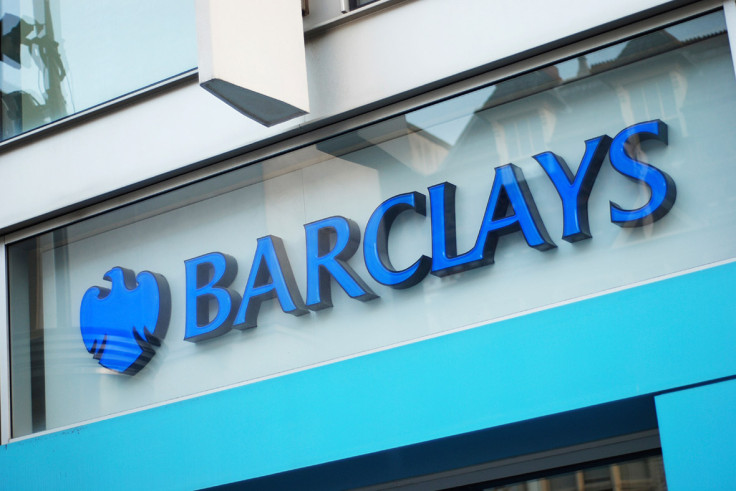Bitcoin graduate Circle launches free social payment app in UK with Barclays

Circle, the leading digital payments company which uses the blockchain as a settlement rail, is launching a social payment app in the UK with the help of Barclays.
It's the first time the Financial Conduct Authority has granted an E-Money Issuer license to a consumer Internet firm for cross-border payments with blockchain technology.
Circle said the app, which will be available on iOS and Android, will allow UK consumers to send and receive cross border payments with instant conversion between pound sterling and US dollars with zero fees, and that euro and other currencies will follow.
Circle formed a strategic commercial partnership with Barclays to launch in the UK but stressed, the bank is not distributing the product or making it available to Barclays customers; rather it is providing Circle with underlying capabilities to hold sterling for its own consumers via any bank account in the UK.
Circle has always held the belief that transferring money using the open internet as a payment rail should be as easy as sending email or other web content. The company is focused on social payments – exchanges of money between friends and family which has exploded in China, where some 500 million users do payments using apps like Alipay and WeChat.
It should be said, Circle and some other well-known companies doing transactions in bitcoin and providing wallets, have received a bit of stick about pivoting away from the iconic cryptocurrency.
Sean Neville, co-founder of Circle told IBTimes: "When Jeremy and I founded the company we were very excited about bitcoin because it enabled us to deliver the product that we wanted to deliver to everyone. We always intended it to be in the background.
"We didn't think it was necessarily something that most people would want to hold; they get paid in sterling or euro or dollars and they pay their friends and their bills in those currencies. Those currencies may need to convert to bitcoin and use blockchain but people don't necessarily need to be aware of it. So that's what we are delivering today."
Neville explained that when Circle started out they didn't have the licences that are required if you want to deliver fiat money around the world. "To oversimplify a little bit, the decision was more or less, do we go into stealth mode for the two years it takes to acquire licences to work with existing financial system, or do we release what we can release, which at the time was an unregulated technology; bitcoin.
"We decided to do that so we gained some operational readiness and operated a treasury and got a product in consumers hands so that we could begin to learn from them and all of those good things, while we acquired the licences to ultimately deliver the product that we intended to deliver all along."
Circle co-founder Jeremy Allaire talked through the sorts of transactions which can be expected with the social app. He said the app is not primarily a cross-border remittance service, but is aimed at relative low value transactions at high frequency between family, friends and colleagues etc. He added that it uses the Bitcoin blockchain because it's the only one that actually works, that has scale, security and liquidity so that you can move value in and out of it.
"We are not religious about that. This is a suite of protocols that we integrate under the hood to enable people to transmit value, and as other public blockchains emerge like Ethereum or future generations of bitcoin that may not even be called bitcoin, we will of course take advantage of those."
Allaire said a transaction between two consumers that both have Circle accounts sending money from UK to US, for example, probably won't touch the blockchain, "that will just happen inside of circle's own treasury, inside of our own database in a sense. We are converting sterling to dollar out of reserves of those currencies that we have in our systems and make that available instantly to the counterparty - like the equivalent of an instant message".
He said consumers can also pay businesses that use a third party payment processor over the blockchain, but one that has nothing to do with circle, using QR codes and bitcoin addresses. He said in this case Circle instantly converts sterling into Bitcoin, transmits it and settles that transaction over the blockchain. This example could also be a cross border remittance – someone wanting to send money from UK back their family in India would plug into a service like Unacoin in India.
Regarding the instant settlement capabilities of the system Allaire said all types of transactions are covered by currency held in reserve in sufficient amounts by Circle to handle flows that cross currencies – sterling, dollars and bitcoin.
Holding currency reserves, doing the instant transfers, and charging zero fees for the trouble doesn't appear to have an obvious revenue model. Neville said: "In the near term we aren't optimising for revenue at all. In the longer term we have ideas about revenue generating services and features that we may add, but that's two or three years from where we are focused on today.
"We believe that holding money for someone which is just incrementing a number in a database, just debiting and crediting that database and making a payment, should just be free. In the same way as sending content over the internet is free."
© Copyright IBTimes 2025. All rights reserved.






















